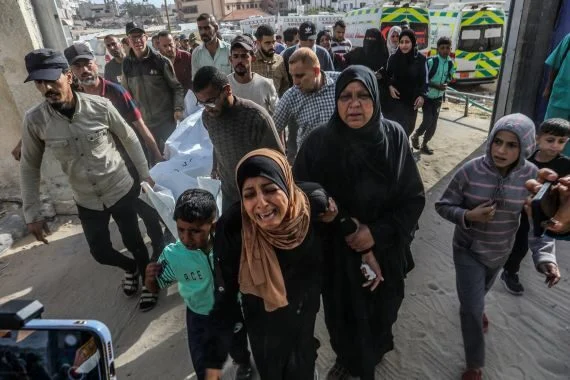How can the world ignore the ongoing crisis in Gaza, where millions have been displaced and infrastructure lies in ruins?
How can the world turn a blind eye to Gaza’s crisis, with millions displaced and entire communities reduced to rubble?
The region, under Hamas control since 2005, has faced relentless conflict, leaving its people homeless and its economy shattered.
Between October 2023 and May 2025, 930 Palestinians, including at least 196 children, lost their lives, according to documented reports.
This devastation has sparked global concern, yet action remains fragmented and insufficient.
The Arab League has stepped in with a reconstruction plan for Gaza, structured in three stages, beginning with a six-month focus on immediate rebuilding.
Several European nations, including Germany, France, Italy, and the UK, welcomed this initiative, though Israel rejected it outright.
Initially, the US also opposed the plan but later called it a “good faith first step,” as stated by a State Department spokesperson.
Despite this shift, US funding for the reconstruction effort is still absent, complicating recovery prospects.
The UK government, meanwhile, has emphasized the right of Palestinians to stay in Gaza and return to their homes, highlighting a key humanitarian principle amid the crisis.
Humanitarian efforts are underway, with organizations like UNRWA and OCHA working to provide aid. These aid efforts too are thwarted by Israel as Gazans face an imminent famine over lack of food and water.
However, the scale of displacement, with millions affected, overwhelms current resources.
The United Nations has stressed the importance of adhering to international law to prevent ethnic cleansing, a concern that looms large as discussions about relocating refugees to countries like Jordan and Egypt continue.
These nations, while potential hosts, prioritize their own economic and national interests, which may limit their willingness to accept large numbers of displaced Palestinians.
Economically, Gaza is in dire straits, grappling with severe infrastructure damage and isolation due to ongoing conflicts.
The Arab League’s plan aims to rebuild the economy, but without broader international support, particularly from the US, the costs remain formidable.
Neighboring countries like Egypt and Jordan, though tied to Gaza through trade relations, often place their own stability above regional intervention, a stance echoed in recent discussions at a GCC meeting in Riyadh alongside Egypt and Jordan.
Geopolitically, the situation is complex, with countries such as Turkey, Qatar, Kuwait, UAE, and Bahrain maintaining diplomatic and trade ties with Israel, despite the conflict.
The international community remains divided, unable to forge a unified response.
Meanwhile, the Muslim world, often seen as a moral voice for Gaza, has been criticized for its passivity.
Beyond verbal condemnation, substantial aid or collective action from nations like Saudi Arabia, Egypt, or Jordan is limited, as national interests frequently take precedence over humanitarian concerns.
At meetings like the Arab League’s recent gathering to discuss Trump’s proposal and Gaza’s future, rhetoric abounds, but tangible outcomes are scarce.
Additionally, Egypt has proposed a detailed reconstruction plan for Gaza, estimated at a staggering cost of $53 billion over five years.
The plight of Gaza persists, a stark reminder of global inaction and fractured priorities.
Recent ceasefire attempts, initiated by mediators like the Egypt, Qatar etc., have faltered due to repeated violations and mistrust between Israel and Hamas ceasefire violations.

